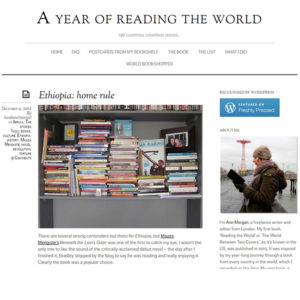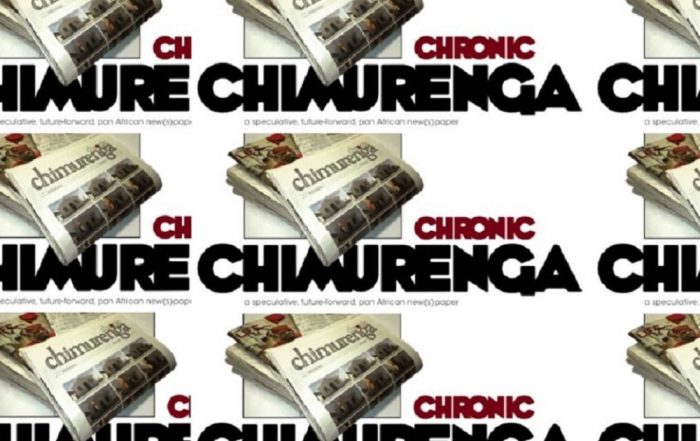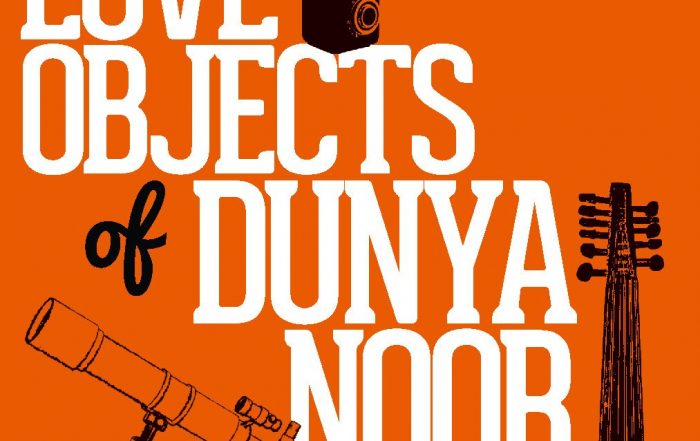There may be a global village for certain writers. But there are many other worlds out there, and world literature for us is about exploring and discovering these worlds, with curiosity and ready to admit that we will not understand everything. And it will be our effort, our work as readers (and as students of literature) to understand and make sense, to learn to appreciate, to question our own tastes.
Statistics show that only between 3 and 5% of literary books published in the UK (fiction, poetry, drama) are translations (Literature across frontiers survey), and the percentage shrinks even more for translations reviewed on book review pages.
In her wonderfully engaging book A Year of Reading the World, London blogger and writer Ann Morgan reflects on this. In 2012, standing in front of her packed bookshelves, she realised that as a “good reader” she had hardly ever read any literature in translation. Her University degree, the recommendations in book review columns, bookshelves in bookshops, all pointed to books written in English.
She then decided, as a challenge, to read one book from every country in the world in one year, and she writes about the difficulty she faced in finding out about and getting hold of translations—even in the age of “global publishing” and internet portals.
All the talk of “world literature” and “global literature” (“there is now but one, world literature”) has produced a paradox. In theory it should make us more aware of, and reach out more for, literature in translation. It should be obvious that to read the literature of the world you have to read most of it in translation. (Though the more extreme version of “world literature is one” goes as far as to say that the language of world literature is English, world literature is in English—and so makes translation unnecessary.)
So our point, through this website and through our reading recommendations and itineraries, is that we should reject/oppose the view of the “global village” and “world readers” in literature as not only untrue but also misleading.
But here’s the catch, the insidious and pernicious side of world literature talk. By saying “it’s all one world”, it does two things. It suggests that the conglomerate of large publishers and book reviews is already giving world literature to you. It’s all “there”. What you see is what there is.
It also suggests that there exists someone called the “world reader”, who has universal tastes and can easily understand and appreciate “world literature”. In her book The World Republic of Letters (2007) (La république mondiale des Lettres, 1999), Pascale Casanova defines a “world reader” a reader from a field so rich in literary capital – thus inevitably western or as Vittorio Coletti puts it (in Romanzo mondo: La letteratura nel villaggio globale, 2011), ‘which has fully absorbed the peaks of European literature’ – that she has risen above national or other biases or predispositions. Casanova terms professional world readers “autonomous critics”, who embody and think they embody “universal” literary tastes.
Yet Ann Morgan, a “world reader” if ever there was one, also writes (and I can totally identify with her here) at how challenged she felt as a reader by the books, in most cases novels, that she read and that were recommended to her—sometimes in terms of politics, of understanding, of aesthetics. There are no “universal tastes”. (I was intrigued that, as a reader, she did not want too much explanation or introduction. As a reader and student of literature, I always feel that I appreciate something more after it’s been explained to me, and I can never have enough context—but here we are, not all “world readers” are alike!)
So our point, through this website and through our reading recommendations and itineraries, is that we should reject/oppose the view of the “global village” and “world readers” in literature as not only untrue but also misleading.
There may be a global village for certain writers (particularly novel writers, particularly in English), and literary festivals do give that impression. But there are many other worlds out there, and world literature for us is about exploring and discovering these worlds, with curiosity and ready to admit that we will not understand everything. And it will be our effort, our work as readers (and as students of literature) to understand and make sense, to learn to appreciate, to question our own tastes.
The late geographer Doreen Massey defined space as “the multiplicity of stories and trajectories so far.” This to me is a very good starting point. In the project linked to this website — which compares the multilingual literary cultures of North India, the Maghreb, and the Horn of Africa — instead of taking a bird’s eye view of world literature as one big map that assumes readers in Europe and the US to be “world readers”, we start from the idea that you can only think of world literature from some standpoint, that it is everywhere multilingual and therefore necessarily plural, and that instead of “one world” there are many “significant geographies” to explore and discover.
Relevant posts
Literary Activism, Ecologies of Production and Networks of Practice in Contemporary Africa Webinar
Madhu Krishnan is Professor of African, World and Comparative Literatures at the University of Bristol. She is the author of Writing Spatiality in West Africa: Colonial Legacies in the Anglophone/Francophone Novel (2018), Contingent Canons:
How Love is Revolution: The Unexpected Love Objects of Dunya Noor
The novelist Rana Haddad writes about her novel, "The Unexpected Love Objects of Dunya Noor" for the MULOSIGE project.
Editorial for Special Issue of ‘Foreign Literatures’ on Indian Literature
Simon Leese translates ‘This issue’ (editorial for special issue on Indian Literature) by ʿAlī ʿUqlah ʿUrsān (Ali Ukla Ursan) al-Ādāb al-ajnabīyah 54 and 55, Winter [1987] and Spring 1988: 3-8. The original essay can






Leave A Comment